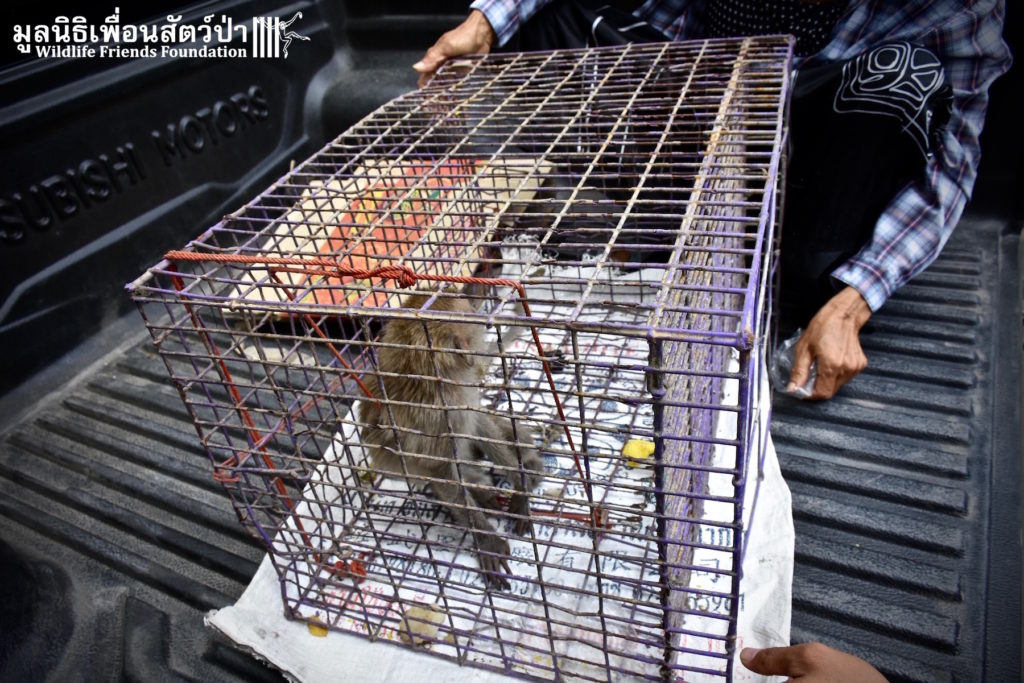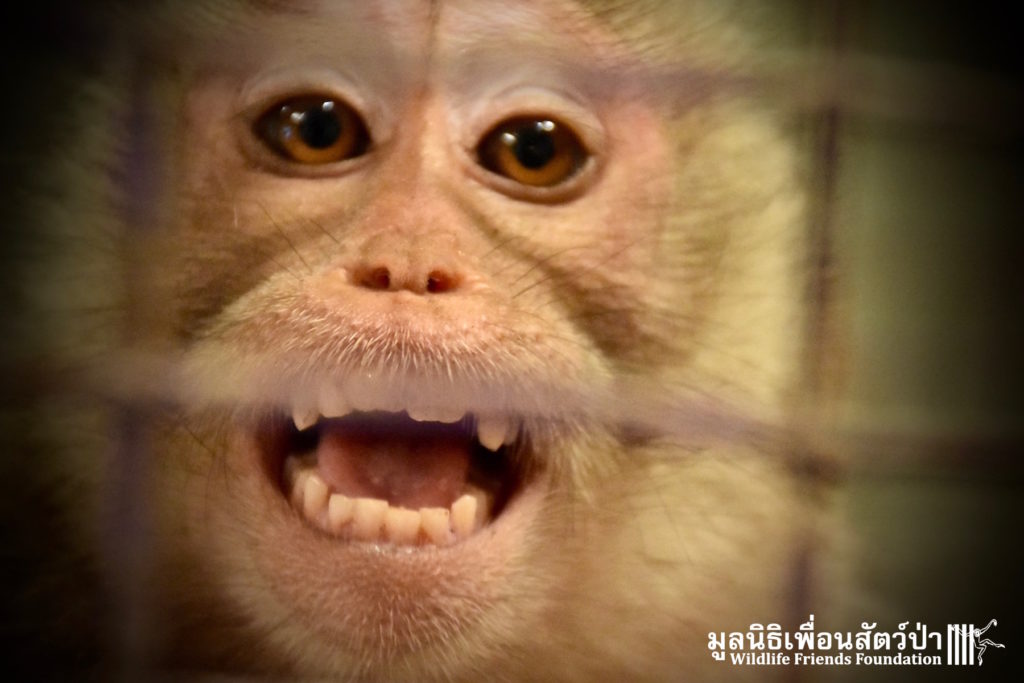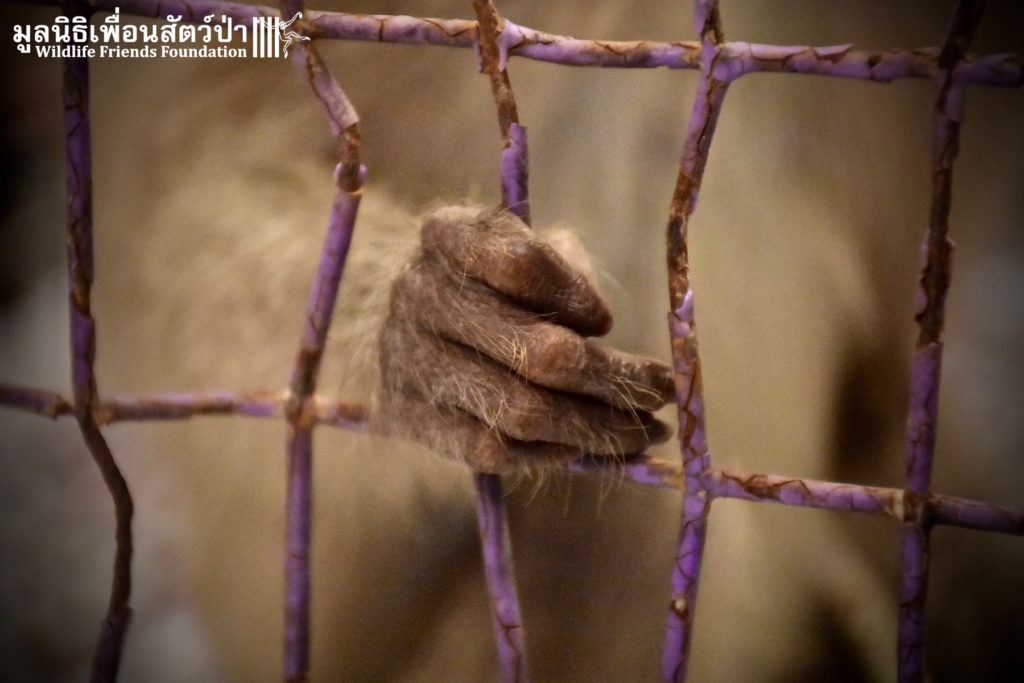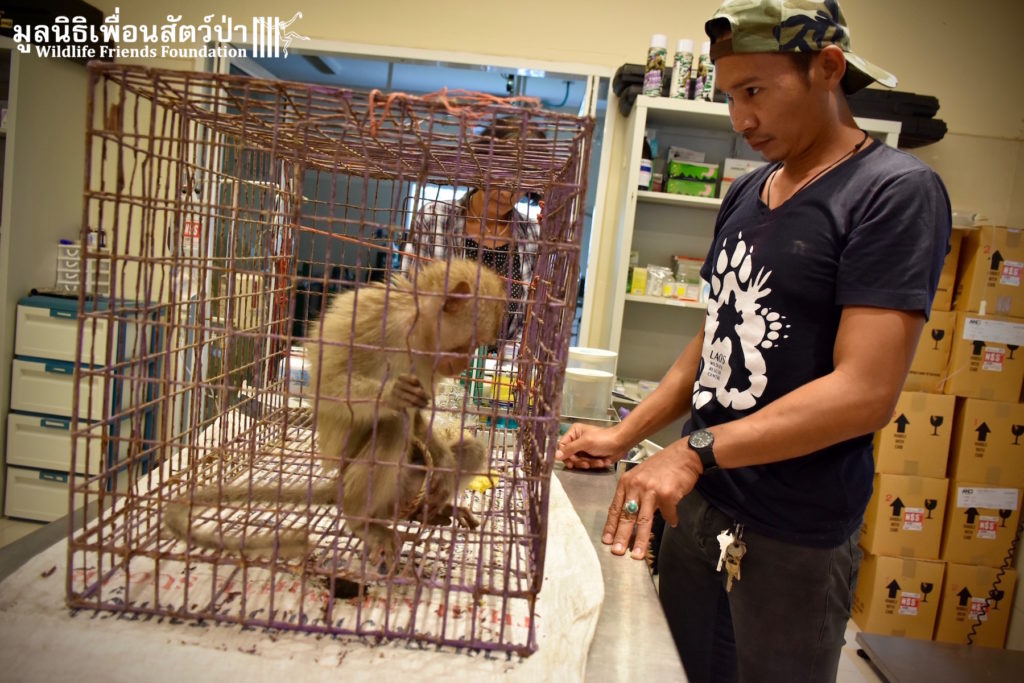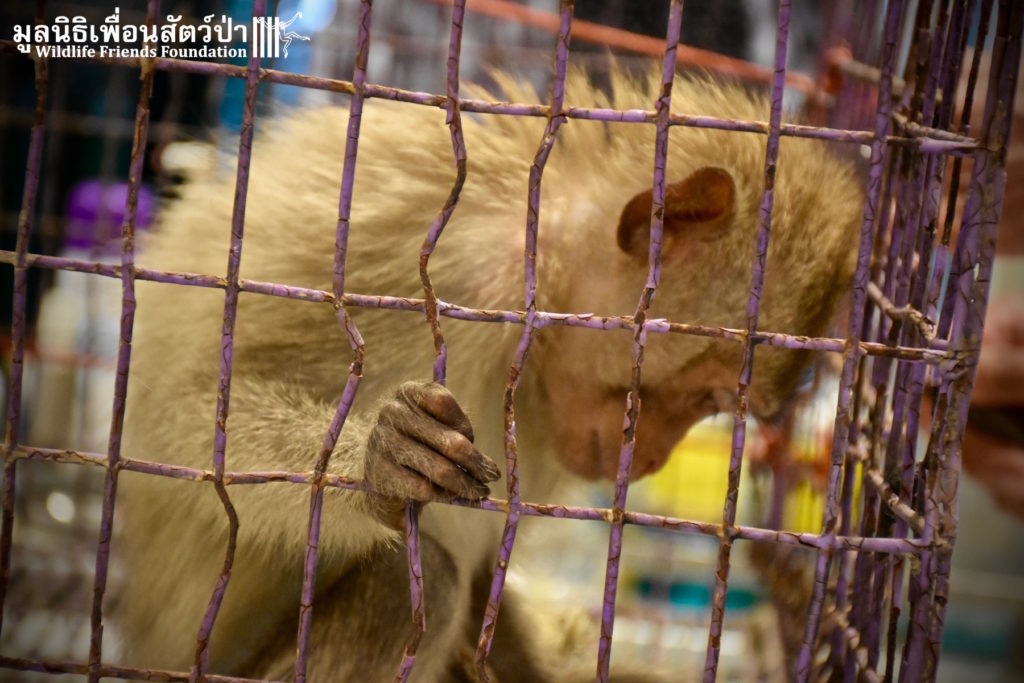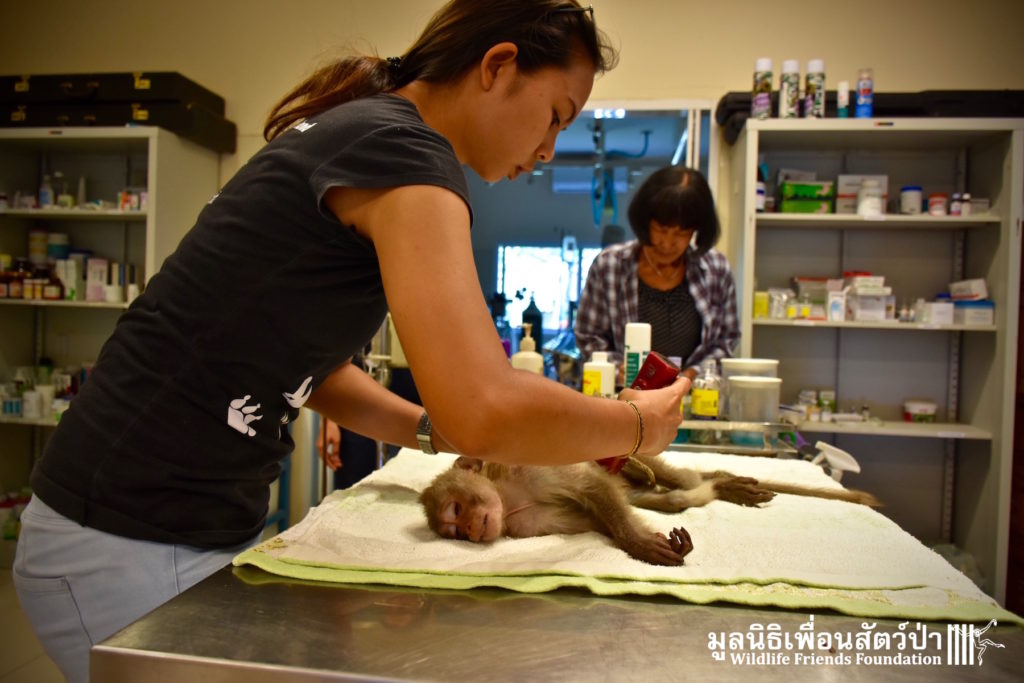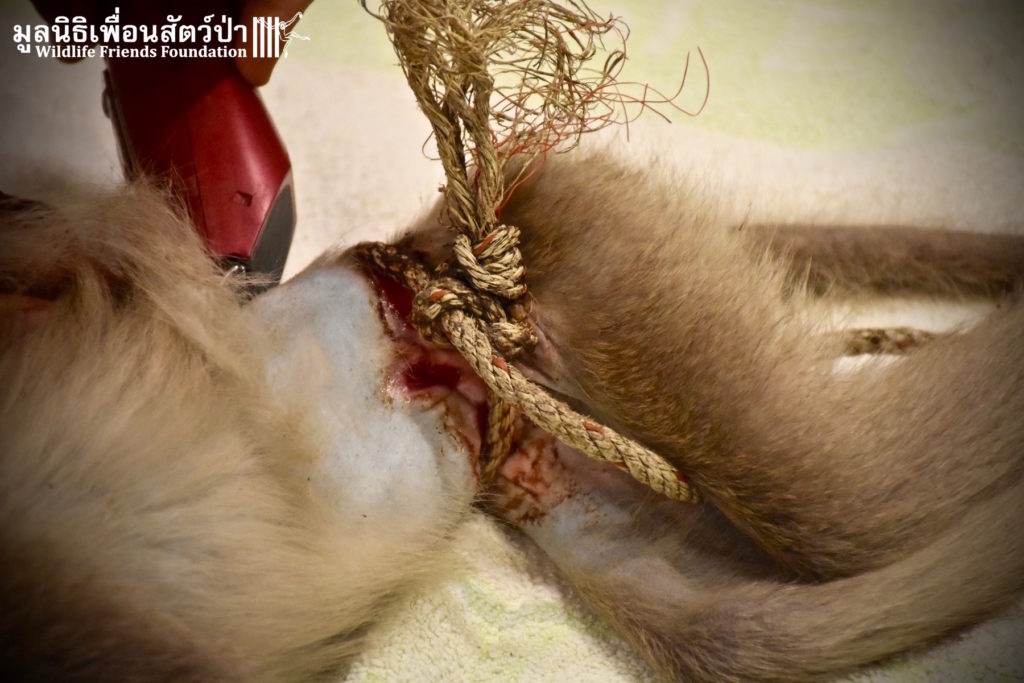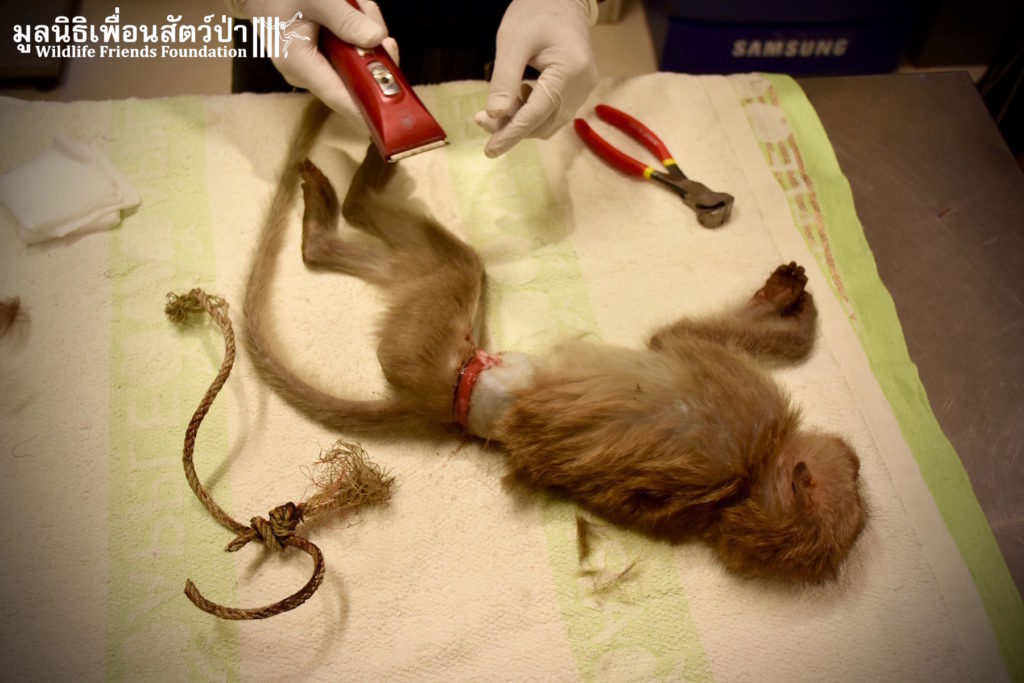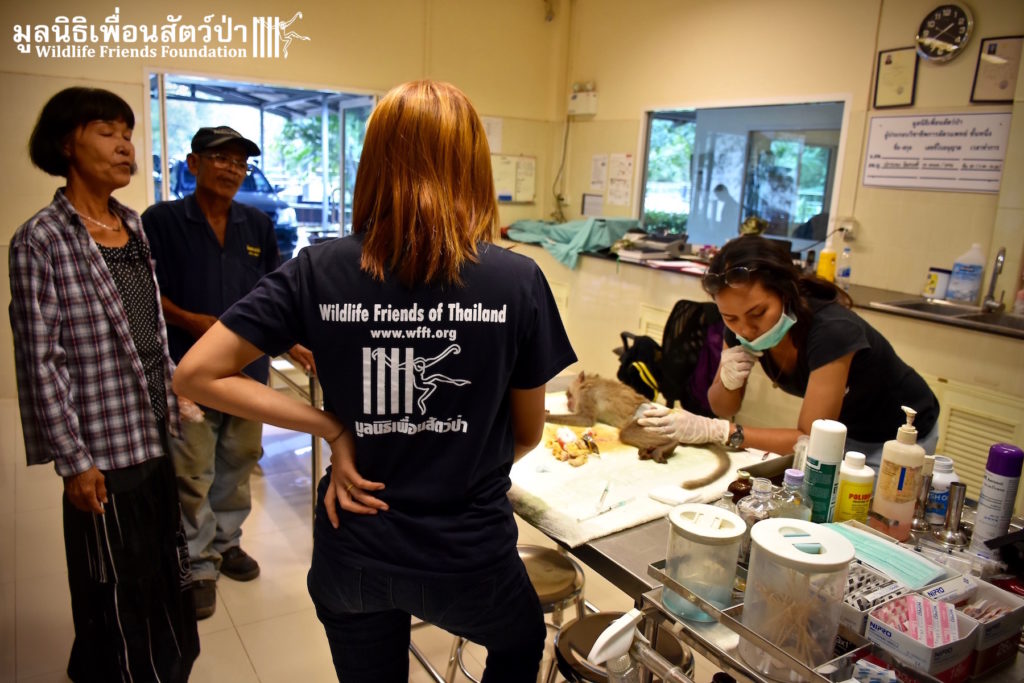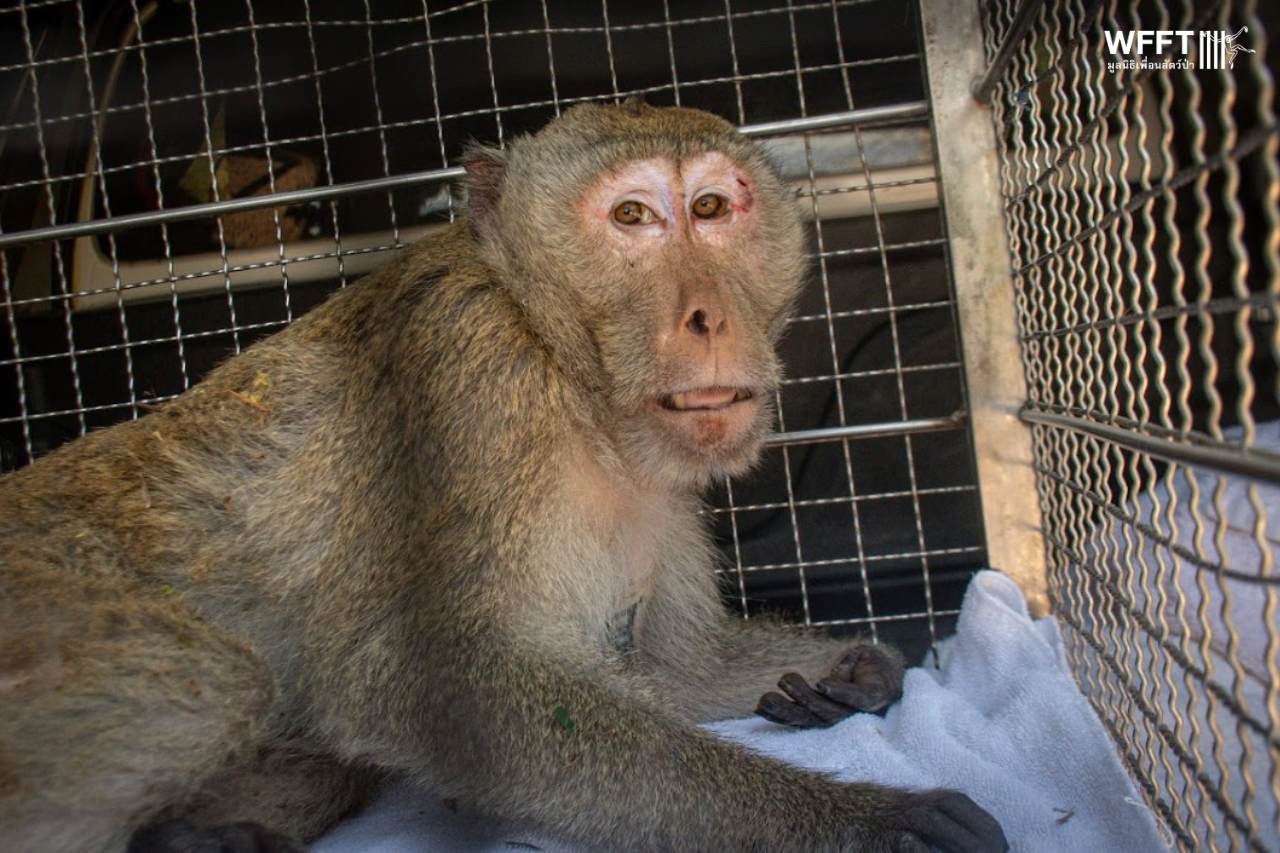It's time to take action—learn how you can help stop this exploitation and protect slow lorises from further harm.
The Story of a Trapped ‘Pest’
Two days ago we received a call form the local livestock department who needed assistance with the treatment of an injured sub-adult male long-tailed macaque (Macaca fascicularis). He had been caught 2 months prior as he was seen as a pest within the area he lived. After further discussions with the people who had captured him, as to how and why they had caught him, they informed that the area in which he came from has a population of macaques that the local community were not happy about. These macaques had been systematically trapped, caught and killed, they informed that there used to be a population of 50 individuals but now there are only 9, this little guy being one of them. Luckily for him he was brought to the WFFT Wildlife Rescue Centre for treatment and not killed. He was caught and tethered with a rope around his waist which you can see has started to become imbedded within his abdomen.
The long-tailed macaque is listed as Least Concern (LC) by the IUCN Red list of Threatened Species. Habitat loss and degradation due to human encroachment, pose the biggest threat to all macaque species. They are regularly persecuted as pests. Increasing competition between macaques and humans due the increase in need of land for agriculture and other human activities is the foremost reason that macaques are persecuted as pests. Hostile encounters with macaques are common in urban areas due to the active promotion of their presence for spiritual and entertainment purposes by provisioning food for the macaques. We (humans) both promote population growth through the provision of food and the protection habitat, but on the other hand we hinder it through the continued fragmentation of their habitat, and the capture and exportation for research, and the pet-trade.
WFFT is in the process of investigating further into this case and hope to be able to help the remaining macaques in some way. For now, this little guy is recovering at the WFFT Wildlife Hospital.

